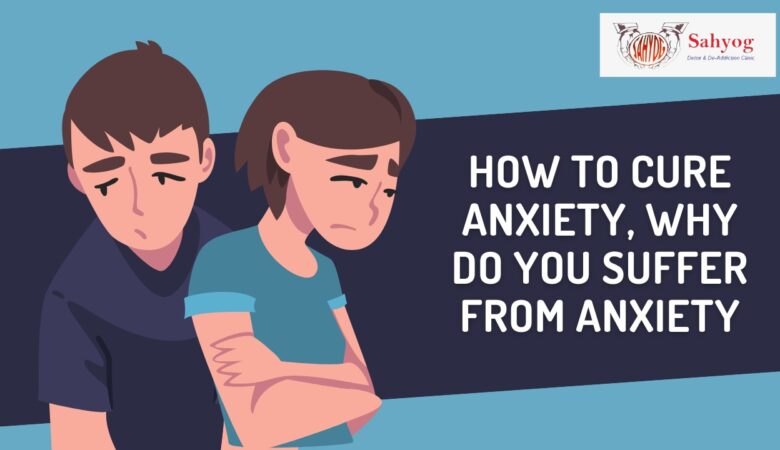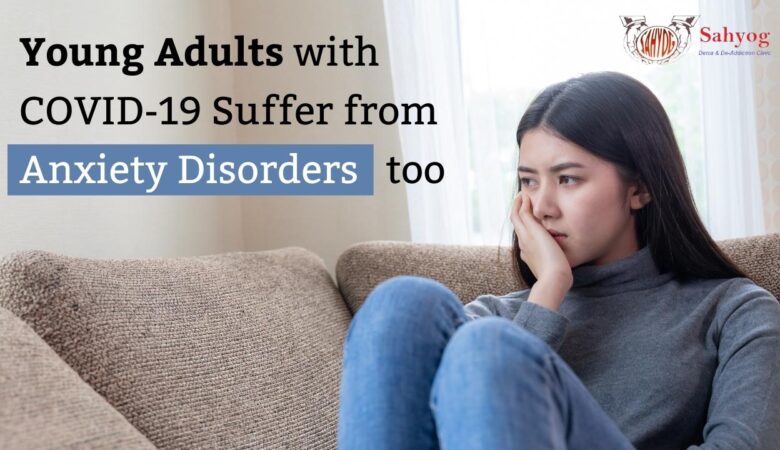How To Cure Anxiety? Why Do You Suffer From Anxiety?
Introduction Do you suffer from anxiety? Do you always feel on edge, like something bad is going to happen? If so, you’re not alone. Anxiety, most prevalent in the United States, is one of the most commonly found mental health disorders. Millions of people of different ages and from all walks of life suffer anxiety. But what exactly is anxiety? And the more necessary question to ask is how to cure it. This blog post aims to answer these questions and provide more information regarding the same. From the different types of anxiety to effective treatments, read on to learn everything you need to know about this debilitating disorder. What is Anxiety? Anxiety can be worry, fear, or a feeling of uneasiness, and can be mild or severe. Everyone feels anxious at some point in their life, but for some people, anxiety can be a chronic (long-lasting) condition. Anxiety disorders are the most common types of mental health disorders in the United States, and everywhere else in the world. Anxiety disorders can be categorized under many types, some of these include: Generalized anxiety disorder (GAD): Generalized anxiety disorder is probably caused by a complex mix of biological and environmental factors, such as variations in brain chemistry and performance, genetics, and variations in how threats are perceived, among others. Medications and drug addictions can also trigger GAD symptoms. Panic disorder: Anxiety disorders like panic disorder are characterized by sudden, severe, and repeated panic attacks. The abrupt onset of great dread known as a panic attack can include palpitations, perspiration, trembling, a lack of breath, immobility, or the perception that something horrible is about to occur. Social anxiety disorder (SAD): A significant and enduring fear of social or performance circumstances where shame or embarrassment might occur is the hallmark of a social anxiety disorder (SAD), often known as social phobia. While it’s common to experience some social anxiety, social anxiety disorder patients report experiencing extreme worry. Specific phobias (such as agoraphobia or claustrophobia): A specific phobia is something like agoraphobia or claustrophobia. Any specific phobia is the extreme, unreasonable fear of a particular thing or circumstance that is disproportionate to the risk it poses. Obsessive-compulsive disorder (OCD): OCD is a mental health condition characterized by uncontrollably repetitive behavior. Obsessions are characterized by a pattern of undesirable thoughts and worries that cause you to engage in repetitive behaviors (compulsions). Posttraumatic stress disorder (PTSD): A psychiatric disorder that appears after a traumatic event and is characterized by intrusive memories of the event, ongoing anguish or anxiety, recollections, and aversion to comparable circumstances. The disorders may also have some physical symptoms, like a fast heartbeat, excessive sweating, and shaking. These symptoms can make it hard to go about your daily activities. For some people with anxiety disorders, the symptoms are so severe that they may avoid work, school, family gatherings, or other social situations. Why Do You Suffer From Anxiety? If you’re like most people suffering from anxiety, you may not even know why you’re anxious. It can feel like the anxiety is just a part of who you are and there’s nothing you can do about it. But the truth is, there are usually specific reasons why we suffer from anxiety. Once we identify those reasons, we can start to work on addressing them. One common reason for anxiety is unresolved trauma from our past. This could be something like childhood abuse or neglect, a car accident, or a difficult break-up. During a traumatic situation, our brains activate our survival mode, releasing many stress hormones like cortisol. This can lead to long-term changes in our brain chemistry that make us more susceptible to anxiety. Another reason for anxiety can be chronic stress in our lives. If we’re constantly under pressure at work or home, our bodies never get a chance to relax and recover. This can also lead to changes in brain chemistry and an increased risk for anxiety. There are many other potential causes of anxiety as well, including genetics, medical conditions, and even certain medications. If you’re struggling with anxiety, it’s important to talk to your doctor or a mental health professional to figure out what might be causing it for you specifically. Once you know the cause, you can start working on finding a solution that will help you feel better and live a more comfortable life. Symptoms of Anxiety Anxiety is a very normal emotion that every person feels at some point in their lives. However, when anxiety becomes excessive and starts to interfere with our daily lives, it can become a problem. Symptoms of anxiety can include feeling restless or tense, having difficulty concentrating, feeling like your mind is racing, and being easily fatigued. If you find yourself or someone you know experiencing any of these symptoms, it is important to talk to a doctor about ways to manage your anxiety. Anxiety can be treated with medication, therapy, or a combination of the two. Consequences of Anxiety Anxiety can have many negative consequences on your life. It can make it difficult to concentrate and make decisions, and can lead to physical symptoms like a racing heart, sweating, and trembling. Anxiety can also make you feel isolated and alone, as well as cause you to miss out on important aspects of life. If left untreated, anxiety can also lead to more serious health problems, like heart disease, high blood pressure, and depression. Untreated anxiety can significantly reduce the quality of your life. How to Cure Anxiety? Several different treatment options are available for anxiety. The best treatment plan for you will depend on the severity of your symptoms and the underlying cause of your anxiety. Treatment options can include counseling, medication, and lifestyle changes. If you’re struggling with anxiety, the most important thing to remember is that you’re not alone. Millions of people suffer from anxiety disorders. But there is hope! There are many effective treatments for anxiety that can help you lead a normal, productive life. The first


